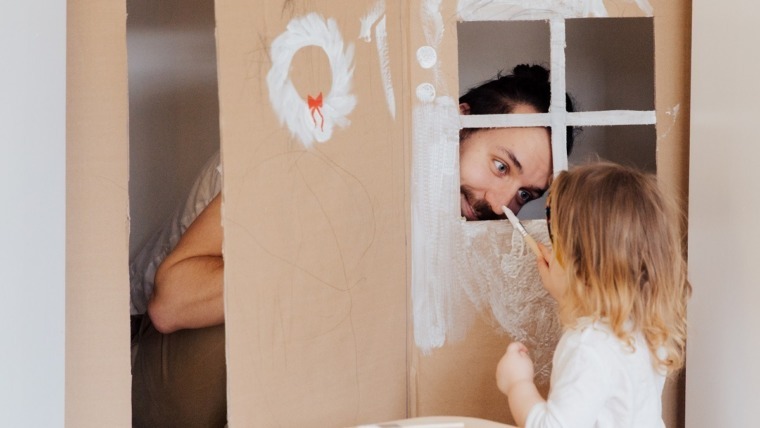
Written by James Burnett, Founder and CEO of ORIGO Education
Mathematics is often associated with negative thoughts and memories – mostly due to how it was learned in school. But maths plays a big part in our everyday lives, and as such, our understanding of maths, and willingness to do maths determines how well we engage in society. If we can change children's perception of maths, starting at home, we will instil more positive attitudes and a desire to 'do' maths. Here are tips to help make maths meaningful, enjoyable and therefore, accessible to children.
Show Genuine Interest.
We all know children love to talk. Try asking them open-ended questions and encourage them to use their language to describe mathematical situations. For example, "How did you solve that?" or "What is another way you could do it?" Children will be prompted to provide their answers, and there may be more than one answer. Try not to rush your child. It is better to encourage them to elaborate. Modelling meaningful conversations around maths can help stimulate healthy learning habits. As they get older, it is essential to remember that you don't need to know all the solutions to their mathematical problems. But by cultivating meaningful discussions around their learning and understanding their strengths and weakness, you can influence their overall attitude towards maths.
Make it Relevant.
Much of what we learn in primary school prepares us for the 'real world, such as shopping, telling the time, cooking, and so on. Children turn off when they don't see a purpose in what they are learning. So, get them involved in your everyday activities such as cooking or shopping. Have them measure out the quantities when you cook or bake or calculate costs when shopping. When I was young, I would use my calculator to keep a running total of everything mum put in the shopping trolley. This was most helpful for her, and I picked up some useful skills in the process. As I got older, I used the calculator to figure out our best purchases of the same products by different brands.
Positive Affirmations.
Be mindful of the words you use around children as they can have a very positive or negative effect on their attitude to learning in general, and to mathematics specifically. For example, avoid saying, "I hate maths!" or "I was never good at maths," which can hinder a child's motivation to seek further development. Instead, encourage a "can do" attitude based on praise.
• "I like how you worked that out!"
• "That is excellent thinking!"
• "I love how your brain works!"
• "Wow, you are very good at mathematics!"
• "Let's try this together."
Try turning negative experiences or wrong answers into positive learning curves. Go through the process to understand where they went wrong and look for strategies that will help them next time - this can also be a more memorable way for them to learn.
Turn It into a Game.
Mathematics can be fun, and when it is fun, you don't realise you are doing maths. Many card games require basic mathematics. Take opportunities to play simple games like Uno or Five Crowns with your children. There are also many fun games on the market that are specifically designed to develop math skills or foster thinking. If we present children with games that engage them in maths, it serves to reduce anxiety and builds a positive mindset towards 'doing' mathematics. For example, at ORIGO Education, we have developed games and other activities that help engage students with mathematics. Games ordinarily involve a winner and a loser, so we try to focus on activities with the same rewarding feeling of a game, but with fewer losers.
For most kids, it's not their inability to do the math that's the problem. It's that they don't enjoy it. It might sound counterintuitive, but if we focus on their enjoyment, then the skills will follow. If we can integrate a genuine interest in our children's learning, along with making it relevant to them and showing a positive attitude, it can change the way children choose to learn and equip them with the confidence to solve problems independently.



